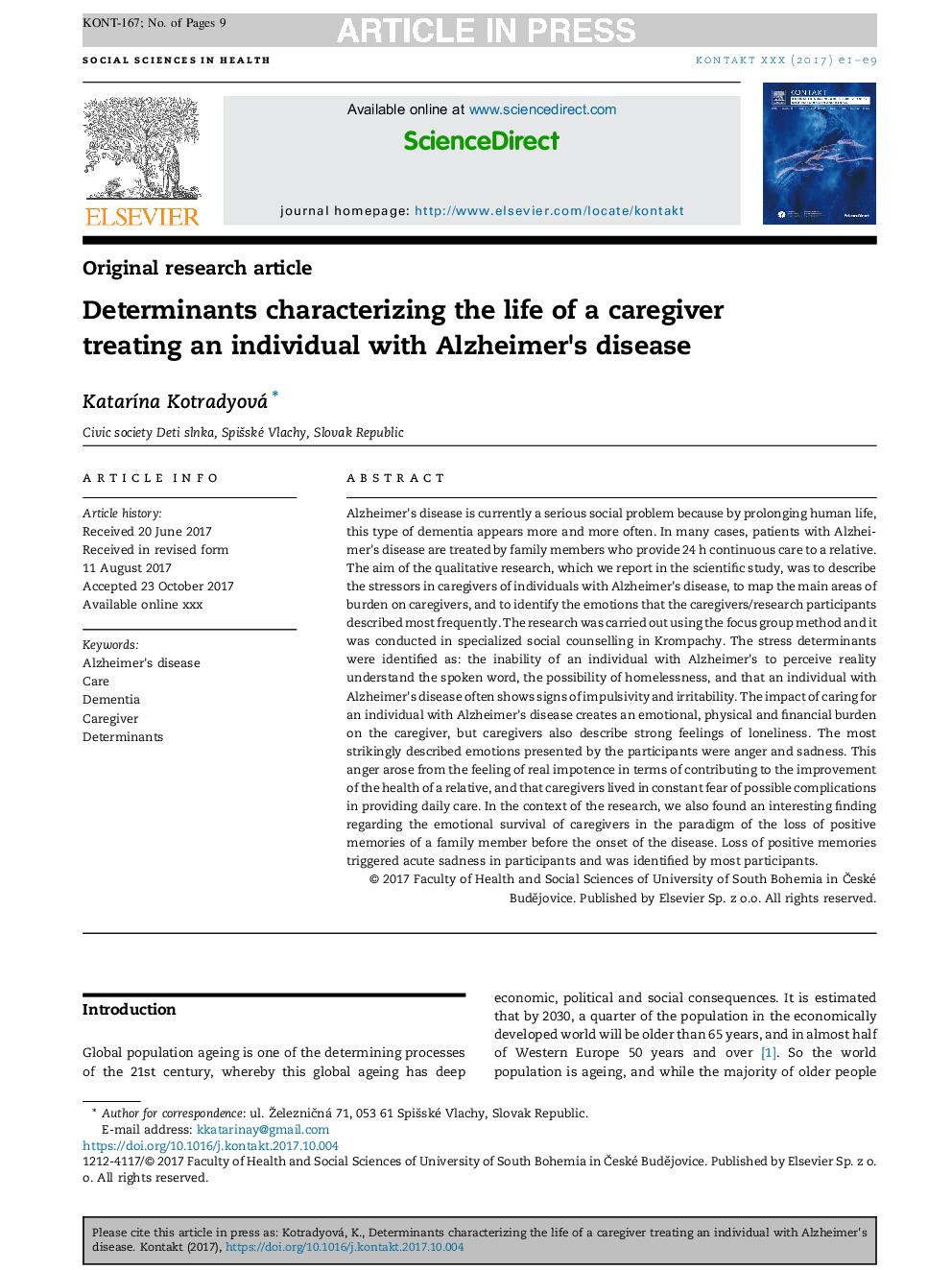| Article ID | Journal | Published Year | Pages | File Type |
|---|---|---|---|---|
| 7521413 | Kontakt | 2018 | 9 Pages |
Abstract
Alzheimer's disease is currently a serious social problem because by prolonging human life, this type of dementia appears more and more often. In many cases, patients with Alzheimer's disease are treated by family members who provide 24Â h continuous care to a relative. The aim of the qualitative research, which we report in the scientific study, was to describe the stressors in caregivers of individuals with Alzheimer's disease, to map the main areas of burden on caregivers, and to identify the emotions that the caregivers/research participants described most frequently. The research was carried out using the focus group method and it was conducted in specialized social counselling in Krompachy. The stress determinants were identified as: the inability of an individual with Alzheimer's to perceive reality understand the spoken word, the possibility of homelessness, and that an individual with Alzheimer's disease often shows signs of impulsivity and irritability. The impact of caring for an individual with Alzheimer's disease creates an emotional, physical and financial burden on the caregiver, but caregivers also describe strong feelings of loneliness. The most strikingly described emotions presented by the participants were anger and sadness. This anger arose from the feeling of real impotence in terms of contributing to the improvement of the health of a relative, and that caregivers lived in constant fear of possible complications in providing daily care. In the context of the research, we also found an interesting finding regarding the emotional survival of caregivers in the paradigm of the loss of positive memories of a family member before the onset of the disease. Loss of positive memories triggered acute sadness in participants and was identified by most participants.
Related Topics
Health Sciences
Medicine and Dentistry
Public Health and Health Policy
Authors
KatarÃna Kotradyová,
